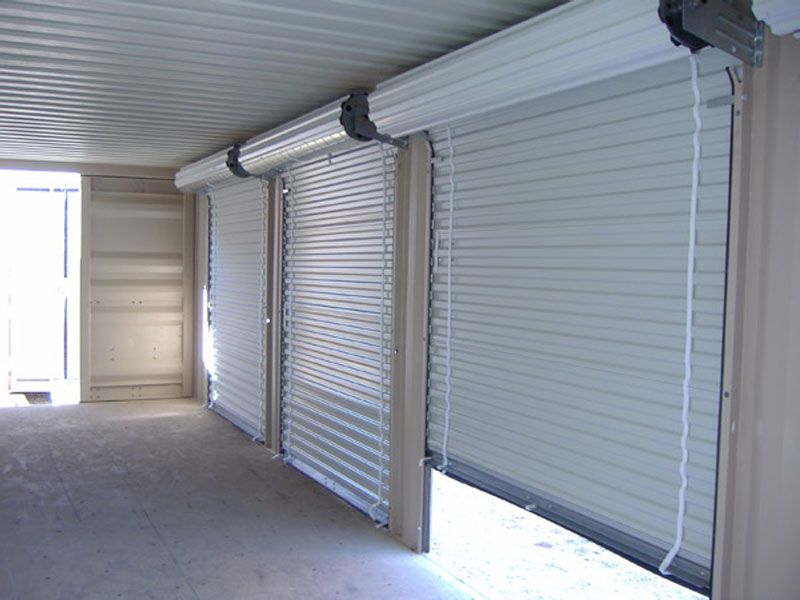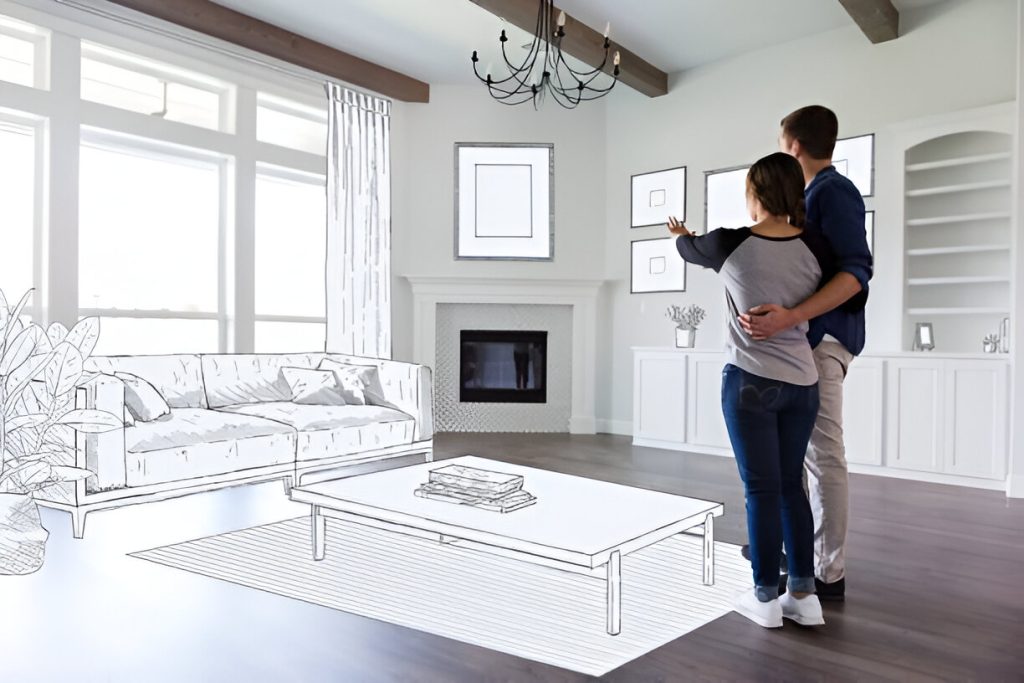When it comes to roll-up garage doors, remember the saying, “The devil is in the details.” Understanding the nuances of these doors can make a significant difference in your home or business. From their sturdy build to the array of options available, grasping the intricacies of roll-up doors is crucial. So, let’s unravel the layers of benefits, types, costs, and maintenance together – you might just find the perfect fit for your needs.
Construction and Functionality
Roll-up garage doors are meticulously engineered using sheets of durable metal, primarily steel or aluminum, that coil around a spring-loaded shaft as they open, ensuring smooth functionality and longevity. When it comes to installation, these doors offer a straightforward process that can be handled efficiently by professionals. Security features are paramount in roll-up doors, with thick steel and optional locks providing enhanced protection for your property. Additionally, energy efficiency is a key benefit, as these doors can be insulated to regulate temperature, saving on heating and cooling costs. Design options abound, offering a variety of styles and finishes to complement any aesthetic preference. Moreover, roll-up doors boast excellent weather resistance, standing strong against harsh elements to keep your garage secure and well-insulated. Whether for residential or commercial use, these doors combine durability, security, energy efficiency, design versatility, and weather resilience in one reliable package.
Advantages of Roll-Up Doors
When considering the functionality and construction of roll-up garage doors, it’s essential to understand the array of advantages these doors offer.
- Durability Benefits: Roll-up doors are known for their robust construction, made of materials like steel or aluminum, ensuring they can withstand years of use without significant wear and tear.
- Security Features: These doors provide enhanced security with their thick steel composition and optional locks, offering peace of mind for homeowners and business owners alike.
- Insulation Advantages: Roll-up doors can come with insulation options that help regulate temperature, keeping your garage cooler in summer and warmer in winter. This feature can also contribute to energy efficiency, potentially reducing heating and cooling costs over time.
In terms of cost efficiency and longevity comparison, roll-up doors prove to be a sound investment, offering a balance between initial cost and long-term benefits. Their durability and security features, coupled with insulation advantages, make them a popular choice for many seeking a reliable and efficient garage door solution.
Types of Roll-Up Doors
Different categories of roll-up doors cater to various usage levels and security needs in residential and commercial settings. Roll-up doors come in light-duty for minimal wear and tear structures, medium-duty suitable for garages or warehouses with moderate use, and heavy-duty doors for extra security or severe weather conditions. Additionally, fire-rated doors are available to detect fire and prevent its spread, while insulated doors help control heating and cooling costs. Each type offers distinct advantages such as security features, insulation options, weather durability, customization choices, and cost-effective solutions.
| Types of Roll-Up Doors | Security Features | Insulation Options |
|---|---|---|
| Light-Duty | Basic locks | Minimal insulation |
| Medium-Duty | Enhanced security | Moderate insulation |
| Heavy-Duty | High-security locks | Optimal insulation |
| Fire-Rated | Fire detection system | Fire-resistant |
| Insulated | Reinforced security | Energy-efficient |
Disadvantages of Roll-Up Doors
While roll-up garage doors offer various advantages, it’s essential to consider the disadvantages associated with their use in residential and commercial settings. Here are some key drawbacks to keep in mind:
- Cost Analysis: Roll-up doors tend to have a higher upfront cost compared to sectional doors, which might impact your budget allocation.
- Security Concerns: Due to the nature of their design, roll-up doors may pose security concerns as they can be susceptible to break-ins if not properly reinforced.
- Maintenance Requirements: Roll-up doors may require more frequent maintenance compared to other types of garage doors, especially concerning the springs and tracks. This could add to your long-term maintenance costs.
Considering these factors alongside the benefits can help you make an informed decision when selecting the right garage door for your needs.
Cost Considerations
Considering the various aspects of roll-up garage doors, it is crucial to carefully assess the cost considerations associated with their installation and maintenance. When budget planning for roll-up doors, factors such as installation costs, material selection, and long-term investment should be taken into account. Installation factors can vary based on the type and size of the door, affecting the overall cost. Different materials, like steel or aluminum, offer varying levels of durability and security, impacting both upfront and long-term expenses. It is essential to compare the value provided by the door with its cost to ensure a wise investment decision. Additionally, understanding what the initial quote includes and any available extras can help in making an informed choice. Remember that while upfront costs are significant, the longevity and quality of the door play a crucial role in determining its overall cost-effectiveness.
Types of Roll-Up Garage Doors
To further explore the realm of roll-up garage doors, let’s now explore the diverse array of options available in the market, each tailored to specific needs and preferences.
- Rolling Steel Garage Doors:
- Strengths: Known for high-security facilities due to metal slats.
- Weaknesses: Higher upfront cost compared to other options.
- Customization Options: Limited customization due to security features.
- Roll-Up Sheet Garage Doors:
- Security Features: Suitable for light commercial use with cost-effective designs.
- Energy Efficiency: Provides insulation for temperature control.
- Material Durability: Made of horizontal steel sheets with a coil-up mechanism.
- Overall Durability and Maintenance:
- Material Durability: Steel construction offers long-lasting performance.
- Security Features: Enhances protection against intruders and extreme weather.
- Energy Efficiency: Insulated options help save on heating and cooling costs.
When considering roll-up garage doors, weigh the strengths of enhanced security and material durability against potential weaknesses like higher upfront costs. Evaluate customization options to ensure the door meets your specific needs for security, energy efficiency, and overall durability.
Benefits of Roll-Up Garage Doors
Roll-Up Garage Doors provide a robust and secure solution for both residential and commercial properties, offering a sleek industrial aesthetic and enhanced protective features. When it comes to security features, these doors are constructed from thick steel, providing a sturdy barrier against intruders. Additionally, some models come with optional locks for added protection. In terms of energy efficiency, insulated options are available, helping regulate temperature and potentially reducing heating and cooling costs. Noise reduction is another advantage, with the door’s design helping to minimize outside disturbances.
Furthermore, customization options allow you to choose the perfect style and color to complement your property. The longevity benefits of Roll-Up Garage Doors are impressive, with stainless steel sheets providing a lifespan of 20-35 years. Investing in a roll-up door not only enhances security and energy efficiency but also adds a touch of elegance to your property.
Maintenance and Care Tips
Regularly inspecting your roll-up garage door for any damages or malfunctions is essential for ensuring its longevity and optimal performance. To keep your roll-up garage door in top shape, follow these maintenance and care tips:
- Rust prevention: Apply a rust-resistant coating to metal parts regularly to prevent corrosion and ensure durability.
- Lubrication techniques: Use a silicone-based lubricant on hinges, rollers, and tracks to maintain smooth operation and reduce wear and tear.
- Weatherproofing methods: Seal any gaps or cracks around the door with weatherstripping to keep out moisture and drafts, preserving the door’s integrity.






